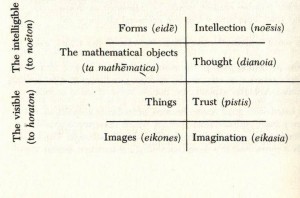In his 3rd Satire, Juvenal tells us what it was like to live in Rome in the late 1st century AD.
There is no room in the city for respectable skills, ‘he said, ‘and no reward for ones efforts. Today my means are less than yesterday; come tomorrow, the little left will be further reduced.
Those who got ahead were those willing to compromise and work as slaves for the wealthy elite.
…let those remain [in Rome] who are able to turn black into white, happily winning contracts for temple, river, harbor, for draining flooded land, and carrying corpses to the pyre-men who auction themselves beneath the owner’s spear… they are the sort that Lady Luck will take from the gutter and raise to the summit of worldly success, whenever she feels like having a joke.
Juvenal lists the frivolous kinds of tasks performed by servants for the super wealthy but he [Umbricius] would never stoop to doing such things to make a living. He writes,
…none will get help from me in a theft; that’s why I never appear on a governor’s staff; you’d think I was crippled – a useless trunk with a paralyzed hand.
The only ones who received patronage were those willing to lie and thieve.
Juvenal blames Rome’s decrepitude on the Greeks but he reserves his most vicious attack for the Syrians.
The Syrian Orontes has long been discharging into the Tiber, carrying with it its language and morals and slanting strings, complete with pipe, not to speak of its native timbrels and the girls who are told by their owners to ply their trade at the race-track.
Juvenal despises the change of dress, and with it, the loss of manhood.
Romulus, look-your bumpkin is donning his Grecian slippers…
I must get away from them and their purple clothes… We may as well face the truth. In most of Italy no one puts on a toga until he’s dead. On grand occasions, when a public holiday is being held in a grassy theatre,.. even then you will see similar clothes being worn by the stall and the rest alike; as robes of their lofty office, the highest aediles are content to appear in plain white tunics.
People lived beyond their means, purchasing clothes they could not afford.
Here the style of people clothes is beyond their means. Too much tends to be borrowed here from another’s account. That is a universal failing. All of us live in pretentious poverty…
Men were effeminate, speaking with high pitched voices, and playing the part of a woman on stage all too well.
What of the fact that the nation excels in flattery, praising the talk of an ignorant patron, the looks of one who is ugly, comparing the stalk-like neck of a weakling to Hercules’ muscles as he holds the giant Antaeus aloft well clear of the ground, admiring a squeaky voice which sounds as wretched as that of the cock, which seizes his partner’s crest in the act of mating?
We, of course, can pay identical compliments; yes, but they are believed. No actor from elsewhere is half as good when playing Thais, or the wife, or Doris who’s clad in no more than her tunic.
—————-
The ancient Romans are something of a mystery to me. Now and again, I come across a conservative Roman writer like Juvenal or Sallust who clings to an earlier, Roman ideal that was very different than that of the Greeks or the Etruscans. Where did the Romans come from?
St. Augustine viewed the ancient Romans with a mix of admiration and criticism. Their lust for glory was less bad than the “vices of the men of other nations or to the avarice, profligacy and love of luxury characteristic of the Romans in the latter days of the Republic and in the Empire…” (H. Deane, The Political and Social Ideas of Augustine, 51)
Glory they most ardently loved: for it they wished to live for it they did not hesitate to die. Every other desire was repressed by the strength of their passion for that one thing. (Augustine, City of God, 5:12)
